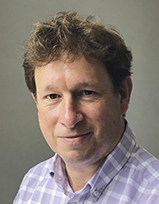Best known today for his opera Ruslan and Lyudmila, and particularly its infectiously vivacious overture, Glinka is often dubbed 'The Father of Russian Music' – forging his own dinstinctively Russian style, he was a profound influence on composers such as Borodin, Rimsky-Korsakov and Musorgsky. Here is a brief snapshot of the great man's life:
1804 Glinka is born on 20 May (Russian calendar; or 1 June in the Western calendar) in Novopasskoye (now called Glinka!), in the Smolensk district, where his family are landowning petty aristocracy. For the first six years of his life he is brought up by his overprotective grandmother who rarely allows him out; mostly he is trapped in a stifling, overheated room from where he hears the peal of church bells, and folksongs sung to him by his nurse (bells and folksongs later feature heavily in his music; he also suffers from hyperchondria all his life).
1810 His grandmother dies and now back in the charge of his parents Glinka hears more mainstream Western music, mostly via his Uncle Afanasy’s serf orchestra. One of the orchestra’s violinists gives Glinka lessons.
1817 Glinka is sent to boarding school in St Petersburg where he has piano and violin lessons, including three lessons with John Field (the Irish composer who invented the Nocturne for piano and who settled in St Petersburg in 1804), and starts to compose.
1824 The securing of an undemanding job at the Council of Communications in St Petersburg leaves Glinka free to spend much of his time immersed in music: in the capital he goes to hear Italian opera and takes singing lessons with a singer, Belloli, while at home in Novopasskoye he studies theory and orchestration, and conducts his Uncle’s serf orchestra. His finest pieces so far are songs: Razocharovaniye (‘Disenchantment’ [very Russian]) and Golos s tovo sveta (‘A voice from the other world’).
1830 Glinka and a friend take an extended trip to Europe. He spends three years based in Milan where he meets Bellini and Donizetti and composes, in 1832, a chamber piece based on themes from Bellini’s La sonnambula (see TIMES 1830). In the winter of 1833-4 he studies counterpoint with Siegfried Dehn in Berlin.
1836 A year after Glinka marries Mariya Petrovna Ivanova (1835), his opera A Life for the Tsar is a stunning success at its first performance, and Glinka is instantly hailed as Russia’s leading composer and given the post of Choirmaster of the imperial chapel. (Though essentially Italian, the opera includes many Russian folksong melodies and its subject matter is entirely Russian.) However the marriage soon founders and Glinka starts an affair with Ekaterina Kern; shortly afterwards he and his wife separate.
1842 Glinka’s next opera, Ruslan and Lyudmila, is not well received. (He conceived of setting Pushkin’s poem immediately after the success of A Life for the Tsar and sought the author’s collaboration but sadly Pushkin was killed in a duel in 1837; (see TIMES 1837). Ruslan falls into the gap between Italian lyric opera and German sung drama and is denigrated by both camps: it is soon dropped to make room for a fashionable Italian company and their repertory. Glinka is bitterly disappointed and depressed, and doesn’t write another opera for over a decade.
1848 After spending time in France (where he got on well with Berlioz), Spain and Smolensk he heads back to France but in Warsaw hears that his passport application has been rejected. Remaining in Warsaw he composes prolifically: the orchestral pieces Recuerdos de Castilla and Kamarinskaya and songs revealing the influence of Chopin.
1854 Now suffering from deteriorating health he manages to spend two years in France (1852-4) but in March 1854 war between France and Russia forces him to return to Russia. He puts together his Memoirs (1854) and a year later starts work on a third opera, Dvumuzhnitsa (‘The bigamist’). (In 1841 Glinka’s wife married bigamously prompting Glinka to arrange an official divorce.)
1857 Glinka visits Berlin in 1856 to study more counterpoint with Siegfried Dehn. He meets Meyerbeer who conducts the Trio from A Life for the Tsar at a concert in January. After the concert Glinka catches a cold and dies on 3 (or 15) February in Berlin. His body is buried there but later exhumed and carried back to St Petersburg.
